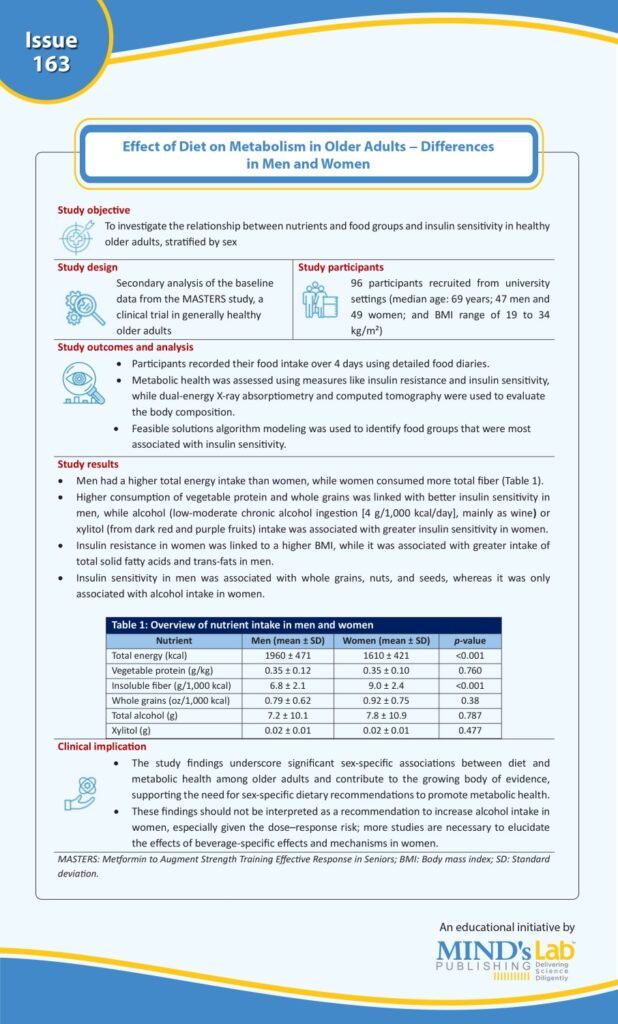
Aging, a complex biological process, is linked with a decline in metabolic health characterized by impaired glucose regulation and functional abilities of older adults. Amongst the factors that influence metabolic health and longevity, diet plays a vital role. A well-balanced diet rich in nutrients such as micronutrients, antioxidants, soluble fibers, and proteins can promote physical function and improve the overall quality of life. However, diet affects cardiometabolic outcomes differently in men and women.
A vast body of evidence shows that men and women metabolize nutrients differently. Although sex-specific dietary recommendations can support maintaining optimal metabolic health in older adults, the health implications of these differences in metabolism and their interaction with diet are not clearly defined. Glucose metabolism as well as insulin sensitivity are the main aspects of cardiometabolic health that are affected by dietary choices. The association between diet, nutrients, and glucose metabolism has been studied extensively. However, gender-specific associations between dietary components and insulin sensitivity are not clear among older adults.
A recent study by Anderson KR et al., published in the journal “Nutrients”, investigated sex-specific associations of nutrients and food groups with insulin sensitivity in otherwise healthy older adults. It analyzed data from a previously completed clinical trial, the MASTERS study (n = 96; median age ~69 years), including healthy older people. Most had moderate-to-high physical activity levels. Univariate analyses were used to identify sex-specific associations between metabolic health and single nutrients as well as other dietary components. Food groups that were most associated with insulin sensitivity were identified by using feasible solutions algorithm modeling. Low-to-moderate alcohol consumption (mainly as wine; 4 g/1,000 kcal/day) and xylitol (from dark red and purple fruits) intake was associated with greater insulin sensitivity in women, while higher consumption of vegetable protein and whole grains was linked with better insulin sensitivity in men, suggesting more favorable metabolic health profiles. Whole grains, nuts, and seeds were the food groups that predicted higher insulin sensitivity in men, while alcohol remained the strongest predictor in women Variations in the metabolic responses to diet between the genders necessitate sex-specific dietary guidelines (see Graphic).
A word of caution: The effects of alcohol on insulin sensitivity note in this study should not be seen as a recommendation for increasing alcohol intake in women. More studies are needed to decipher the effects and mechanisms of different beverages.

(Source: Anderson KR, Kern PA, Steele AL, Lancaster BD, Bee M, Zagzoog AM, Slone SA, Long DE, Fry JL. Sex differences in associations between diet and metabolic health in older adults: The roles of vegetable protein and alcohol intake. Nutrients. 2025;17(21):3460.)
